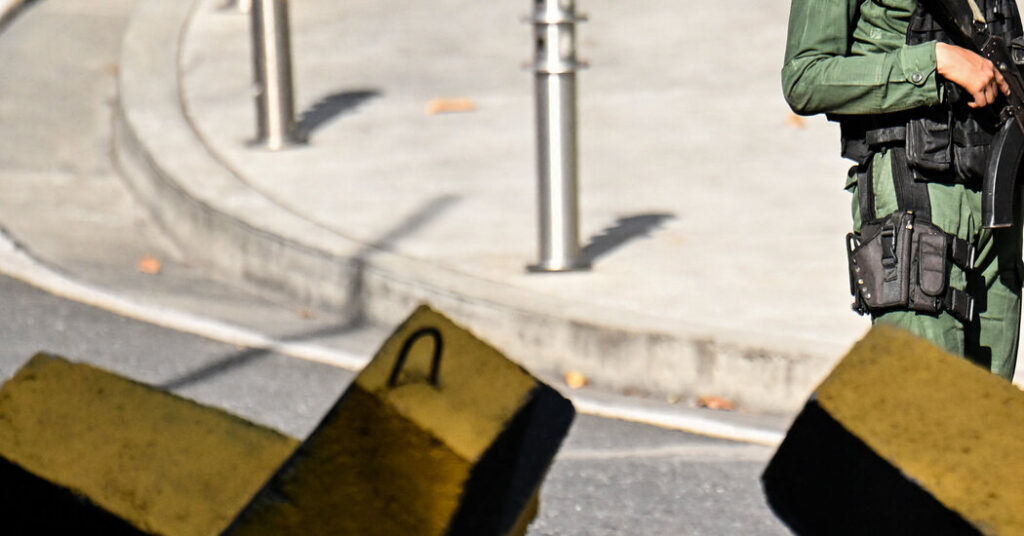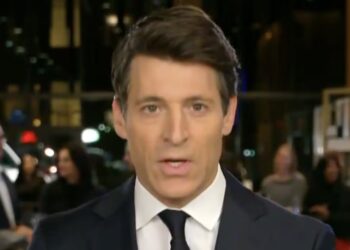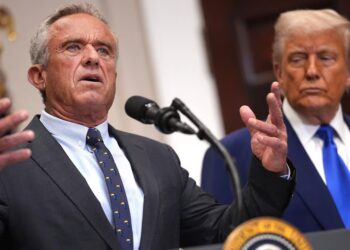Caracas, Venezuela’s neglected but beautiful capital, sits behind a forested, over 9,000-foot tall mountain that obscures the city’s proximity to the sea. From the summit, on a clear day, the Caribbean looks close enough to touch. Out there, over the horizon, like a scattering of toys in a bathtub, floats a good portion of the U.S. Fourth Fleet, packing enough lethal hardware in Tomahawk missiles alone to level large parts of the city. B-52H strategic bombers and supersonic F-35 stealth fighters have prowled the edge of the country’s territorial waters.
There are also signs of President Nicolás Maduro’s response to the American military buildup. Along the highway that winds up to the capital from the coast, the Venezuelan military has placed concrete tank traps beside the tarmac, presumably at the ready in case the amphibious assault group onboard the U.S.S. Iwo Jima should attempt a landing.
Perhaps it’s the mountain that stands in the way of the American military swarm, or maybe it’s their feeling that there’s so little to be done about it, but caraqueños are, for now, going about their normal business. If the traffic is less snarled than it once was, if the restaurants aren’t as full, it has less to do with the specter of war than with Venezuela’s hyperinflation and a repressive security apparatus. Even down at the coast, the American military menace is treated mostly with typical Venezuelan ribaldry, rather than dread. “Have you heard?” people ask each other, jokingly. “The Marines have arrived!”
For all the deadly weapons floating off the coast, it seems increasingly clear that all the Trump administration’s push for regime change in Venezuela has done so far is create a potentially disastrous political trap. If the administration fails to oust Mr. Maduro, as is its apparent goal, that will almost certainly grant the dictator a political victory and deal a lasting blow to the Venezuelan opposition. If it succeeds, and Mr. Maduro finally falls, it may plunge the nation, already in crisis, into a potentially violent breakdown. No matter what happens, everyone loses.
Over the past few weeks, the forward momentum of the U.S. aggression seemed — temporarily at least — to have stalled. Secretary of State Marco Rubio, the driving force behind the thrust for regime change, has played down the possibility of a ground invasion. The recent arrival of the aircraft carrier U.S.S. Gerald R. Ford and its battle group in the Caribbean, and reports of a flurry of meetings in Washington, led to some frantic speculation that the long-awaited ground strikes were imminent. But President Trump’s subsequent statement that the administration “may be having some discussions with Maduro” let the air out of the balloon once again.
Mr. Rubio has a close, longstanding connection to the uncompromising faction of the Venezuelan opposition headed by the Nobel Peace Prize winner María Corina Machado, who is currently in hiding. He is also keen to rid the hemisphere of leftist dictators. If we are then to take Mr. Rubio’s recent comments and Mr. Trump’s stated aversion to foreign military entanglements at face value — not to mention that of the MAGA base — the administration appears to be engaged in a kind of phony war: one that doesn’t require American boots on Venezuelan soil, but that is convincing enough either to scare Mr. Maduro into fleeing or to persuade his own military to topple him.
Ms. Machado and her closest allies have for years tried to persuade outside powers — the United States in particular — to intervene militarily against the Maduro regime, with little success. Mr. Trump’s return to office offered a fresh opportunity. Ms. Machado and her allies sought to build a case that Mr. Maduro posed a clear and present danger to the United States, rooted in three issues that resonated with the Trump administration: drugs, migration and terrorism. There is no public evidence to support the claim that Mr. Maduro is the head of a military-run drug cartel, but it contains enough half-truths to make it politically useful.
The gunboat diplomacy the Trump administration may have hoped would be a shortcut to bloodless regime change does not appear to be working. Mr. Maduro could well be losing sleep over the possibility of a targeted strike, a Special Operations snatch squad or even a full-scale intervention; he claims to have mobilized millions of militia members. But the safest outcome for those in Mr. Maduro’s inner circle is to remain in power. Any officers who might be privately keen to overthrow him would be reluctant to install Ms. Machado, their sworn enemy, in the presidency, and know full well the fate that awaits them if they fall afoul of Mr. Maduro’s security services.
As the world awaits Mr. Trump’s next move, there are broadly speaking two main directions this could go. Either the U.S. fleet disperses, presumably after demonstrating its firepower on some terrestrial targets as a token show of force, and leaves Mr. Maduro in power, or the Trump administration succeeds in toppling the government, with or without landing U.S. troops on Venezuelan soil.
In the first scenario, Mr. Maduro would benefit from having faced down “the empire,” as he calls it, and walk away with even more internal authority than before. Ousting Mr. Maduro could prove even more costly. Unless Ms. Machado and her allies have an unlikely secret transition deal with key figures in the Venezuelan military, whose cohesion and loyalty would be critical to maintaining internal security if Mr. Maduro goes, a swift ouster could produce a power vacuum. That, in turn, could lead to an open-ended internal conflict waged by armed groups resistant to change. Without the commitment of a huge U.S. military force to guarantee internal security — and a sustained diplomatic effort by Washington to back a political transition — Mr. Maduro’s ouster could usher in protracted, bloody chaos that would likely spill over Venezuela’s porous borders.
Ms. Machado and the opposition leadership risk paying a heavy price in either scenario. Having placed all her chips on an external intervention, her domestic credibility will suffer if U.S. force fails. If that happens, the Venezuelan government might not wish to jail her, and thereby make a martyr of a Nobel Peace Prize winner. It might prefer to let her deflate on her own, ideally in exile, where she would be less of a political irritant. If Mr. Maduro falls, but is replaced by a crony, that successor might be less reluctant to have Ms. Machado arrested. Either way, the long, painful struggle to restore the rights of Venezuelans will have suffered a severe setback.
Having outsourced its strategy to a foreign power, the Venezuelan opposition can, for now, do little but brace for impact. When the American fleet sails away and the world’s attention turns elsewhere, they will be left — as the local saying goes — to pick up the broken plates.
Mr. Gunson is a senior analyst for the Andes region at International Crisis Group.
The Times is committed to publishing a diversity of letters to the editor. We’d like to hear what you think about this or any of our articles. Here are some tips. And here’s our email: [email protected].
Follow the New York Times Opinion section on Facebook, Instagram, TikTok, Bluesky, WhatsApp and Threads.
The post I’m in Venezuela. This Is the True Cost of Trump’s Gunboat Diplomacy. appeared first on New York Times.




